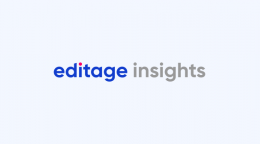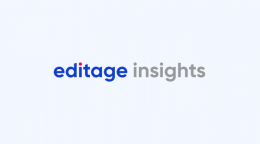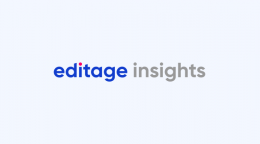Why early career researchers need structured and systematic training
Editage global author survey
A large-scale global author survey conducted by Editage highlighted the perspectives of academic authors on a broad range of topics related to scholarly publishing. Nearly 7,000 authors offered their views on publication processes, journal communication, ethical issues, open access, and the changes they would like to see in journal publishing. This series covers the main report based on the overall findings and several follow-up articles and reports that took a deep dive into specific topics.

Irrespective of tenure, researchers worldwide work in highly competitive environments and are under immense pressure to publish articles in high-impact journals. Recently, Editage released a Global Author Survey Report based on the perspectives of almost 7000 researchers worldwide on various aspects of academic publishing. This report highlighted the gravity and types of problems faced by researchers, especially those from non-Western, non–English-speaking countries. One of the major gaps evident throughout the survey findings was the lack of adequate educational resources and training for researchers, especially those in the early stages of their careers.
For example, we found that early career respondents (those with a tenure of up to 5 years in research/academia) faced far greater difficulty at research/publication stages such as framing a research question than did respondents with more tenure. Further, a higher percentage of early career respondents were unfamiliar with open access, had inadequate understanding of this publishing model, or had never published in an open access journal. We also noticed a rather worrying overall lack of understanding/awareness of publication ethics across respondents.
About 67% respondents said that they turned to supervisors, senior colleagues, or peers when they faced difficulty at any stage. However, not all early career researchers have access to highly qualified/experienced mentors who can guide them appropriately especially if they do not work in premier institutes, as one respondent explained:
“I believe you need to be part of a research group, or have contact with an experienced advisor to understand the nuances of academic publishing. Alternatives that facilitate the process of opening the black box of scientific publications for beginning authors would reduce the differences between studying in a large university with an excellent mentor and studying in a medium university with a medium-sized advisor.”
An almost equal proportion of respondents said that they look for answers and guidance through online searches. While this approach may seem like a natural and easy way to get information quickly, it is in fact not a good use of researchers’ time. They will likely have to spend several hours browsing through everything available online and sifting the information that is important/relevant to them from that which is not. Moreover, with the profusion of online resources on topics like academic writing—not all of which may be updated or of reliable quality—researchers are likely to feel overwhelmed and confused more often than not.
Early career researchers often have several demands on their time and may not have access to the privileges, resources, and financial support that senior or tenured researchers do, and scholarly publishing can be a confusing and frustrating journey for new entrants.
“[It is important to] make the process more accessible for younger/early career researchers. Getting a foot on the ladder can not only be time consuming, but also demoralizing at times.”
They have too many things to learn—how to plan their research and publication strategy, select a journal, communicate with journal editors, prepare a submission, write a paper (probably in a language they are not comfortable in), and deal with rejection or negative peer feedback. And they have to learn these fast to advance.
In the abovementioned survey, we had asked participants what changes they would like to see in scholarly publishing. Several participants shared their comments on the education/training needs of early career researchers in particular.
“I would like the publishing process to be made explicit to young researchers completing their PhDs.”
“Systematic training for academic publication would be required at all levels of professional training (since graduation).”
“During academic training there should be more guidance, workshops, and actions aimed at academic publishing.”
Below is a representative summary of what respondents said they would like to see more of.
- Systematic and ongoing training/courses explaining the nuances of the scholarly publishing industry
- Training/resources that create awareness of predatory journals and provide guidance on how to identify/avoid them
- Systematic/ongoing training on how to write scientific articles, for graduate students and researchers alike, especially ESL individuals
- Free courses/resources on research methodology
These findings were not particularly surprising to us given the nature and frequency of questions we regularly receive from our readers on Editage Insights. Understanding scholarly publishing is integral to life as an academic. So, one of the best ways to support early career researchers is clearly to offer them structured and systematic training on everything they need to know about scholarly publishing early on, perhaps when they are graduate students and yet to embark on their careers.
Higher education institutes, research organizations, and funding bodies should take note of this gap and implement measures to ensure that students and early career professionals receive high-quality training support and resources, if they have not already done so. Institutes can develop courses/resources and establish formal mentorship programs internally. Alternatively, they can partner/liaise with organizations that already offer high-quality educational resources and training programs on this subject.
This will help prepare aspiring academics much better for their career and possibly reduce some of the disadvantages faced specifically by them. The potential savings in terms of time and energy will also alleviate some of their stress and help them focus better on their research.
Related reading:
Published on: Mar 06, 2019
Comments
You're looking to give wings to your academic career and publication journey. We like that!
Why don't we give you complete access! Create a free account and get unlimited access to all resources & a vibrant researcher community.




























